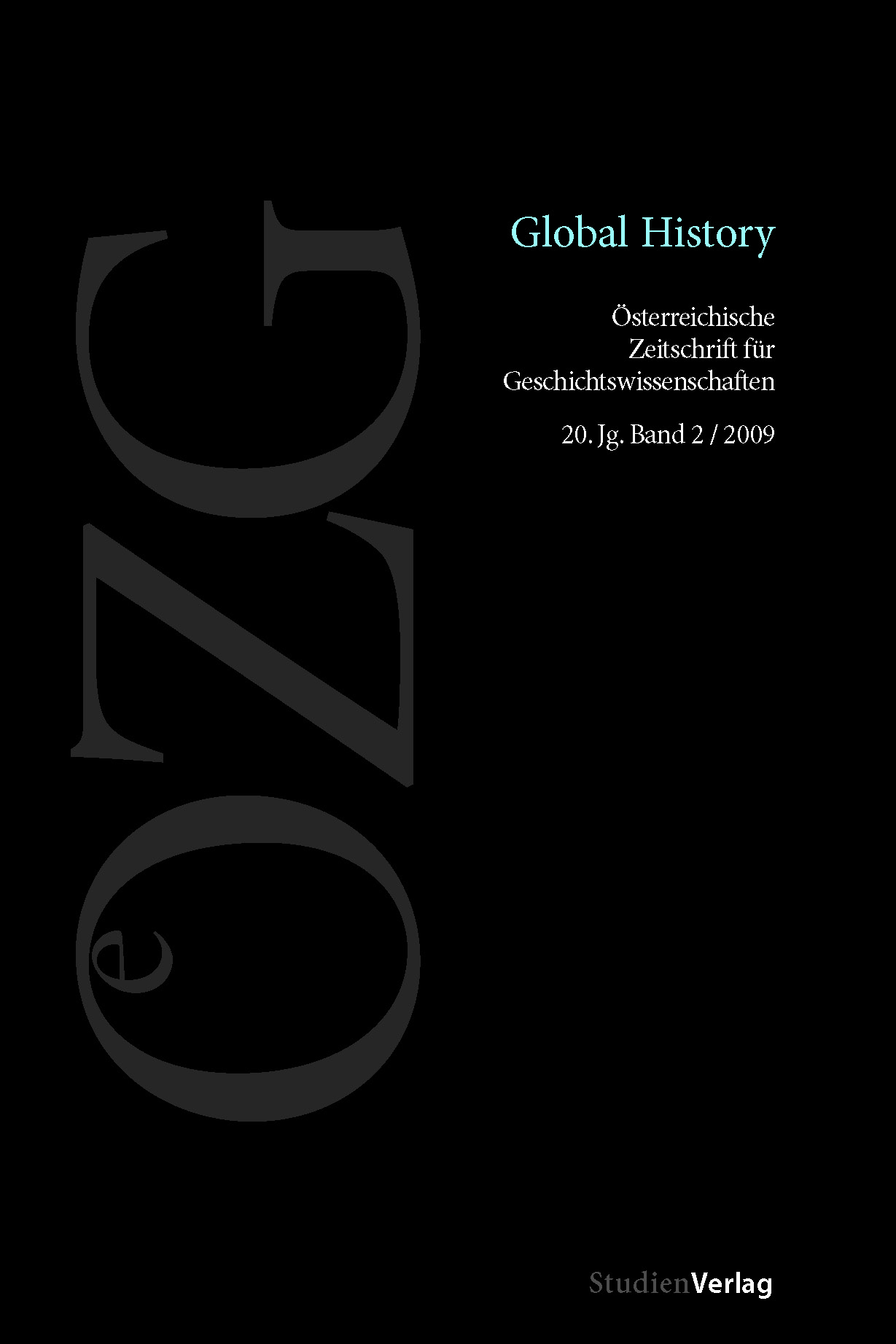Global economic history: a survey
DOI:
https://doi.org/10.25365/oezg-2009-20-2-8Schlagworte:
Rise of the West, Great Divergence, world-systems analysis, California School, economic globalisationAbstract
This text provides an overview of developments in global economic history since World War II. It focuses on two debates: the one on the Great Divergence and the one on character and history of economic globalisation. It starts with discussing what has long been the mainstream explanation of ‘the rise of the West’ and ‘the failure of the Rest’: the claim that, in the West, because of exceptional societal preconditions, a market economy could emerge. It then discusses alternative explanations for the rise of the West, like dependency theory and world-systems analysis, that put more emphasis on its exploitative relations with the rest of the world. The analysis of the debate on the Great Divergence is concluded with a brief presentation of the point of view of the so-called California School that denies Western exceptionalism and claims that the economies of, in particular, Eastern Asia in the early modern era were just as developed as those in the West. They regard ‘the rise of the West’ as a fairly late, fairly sudden and fairly contingent development. One of the main driving forces behind the current increase in interest for global economic history is the fascination with ‘globalisation’. Connections between various parts of the world of course always played a big part in the debates on the Great Divergence. In the last section of the article they are, however, also, briefly, discussed separately and in somewhat more general terms.


